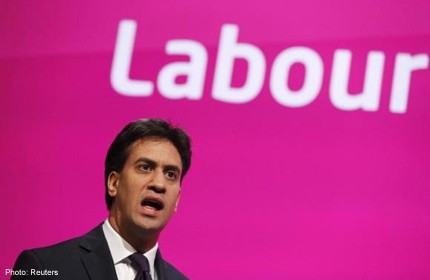Labour faces collapse in support in Scotland - poll

LONDON/EDINBURGH - Britain's opposition Labour party could be almost wiped out in Scotland at a UK-wide election next year, a poll showed on Thursday, raising questions about its ability to defeat Prime Minister David Cameron's Conservatives.
The poll, by Ipsos MORI, showed Labour could lose 90 per cent of its MPs in Scotland with just 23 per cent of voters planning to back the left-leaning party, which has been hurt by the rising popularity of the Scottish National Party (SNP).
The SNP led a failed bid to secure Scottish independence in a referendum last month, but has since bounced back and its ratings remain high.
If Labour's support in Scotland did collapse in a May UK-wide election, the party's chances of unseating Cameron in what is shaping up to be one of the closest electoral contests in modern British history would be badly weakened.
Labour has traditionally dominated Scottish politics and won 41 of 59 Scottish seats in Britain's parliament in the last UK-wide election, in 2010. Cameron's party won the most seats overall, however, thanks mostly to its support in England.
But Thursday's poll suggested Labour would win just four seats in Scotland next year.
By contrast, Ipsos said 52 per cent of Scots planned to back the SNP, who spearheaded the push for Scottish independence in the run-up to last month's referendum. Labour campaigned for the 307-year-old union with England to remain intact.
"The referendum allowed many traditional Labour voters to vote against Labour party policy and once people have made that shift once, they're more likely to do so in the future," James Mitchell, co-director of the Academy of Government at Edinburgh University, told Reuters.
"Labour simply cannot take for granted its vote in Scotland as it could in the past."
Last week, Labour's leader in Scotland, Johann Lamont, unexpectedly quit, highlighting divisions within the party by launching a scathing attack on what she called the "dinosaurs" among its London leadership. She didn't name him, but complained that the Scottish party was treated like "a branch office," a comment widely seen as criticism of Labour leader Ed Miliband.
Some Scots feel the party, which has since launched a search for a new leader in Scotland, has lost touch with voters and failed to offer a distinctive vision for Scotland.
Mark Diffley, director at Ipsos MORI Scotland, said Lamont's resignation had been "bruising" for Labour.
"They will hope that this represents a trough in public support and that their upcoming leadership contest will allow them to begin to regain some of the support they have lost," he said.